

By David Poland poland@moviecitynews.com
2010: The Major Studios
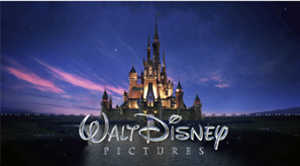
Disney
12 New Theatrical Releases
2 $200m domestic releases
1 $100m-$199m releases
1 under-$25m release
Judging Disney in 2010 is like judging the previous regime. Nothing, except for the animation and Tron Legacy, which was produced by the new head of production, Sean Bailey, has much to do with Rich Ross’ new team. I think it would be fair to say that Alice in Wonderland and, to a great degree, Toy Story 3, had their marketing in place before the door hit Dick Cook and his team on the ass on the way out.
That said, as bad as the three Jerry Bruckheimer films looked from the domestic perspective this year, the comedy was cheap enough not to hurt too much, The Sorcerer’s Apprentice got to $215m worldwide, which is still not enough to make it profitable, but makes the sting of a potential big write down go away, and even Prince of Persia, perhaps the last $200 million investment in a live action movie aside from a Pirates film until the next regime comes along, got to $335 million worldwide… which still will leave a little red ink… but a lot less than a $90m domestic gross caused Disney to fear.
2011 is loaded with the familiar – Disney Animation’s Mars Needs Moms, Pirates 4, Cars 2, Winnie The Pooh, and The New Muppets Movie – and stuff they didn’t pay for starting in August and through the fall, as DreamWorks rolls out their first four films; Emma Stone in The Help, the Fright Night remake, Real Steel, and Spielberg’s War Horse. The only other Disney-made films are Prom and DisneyNature’s African Cats.
In other words… the Disney this regime is promising, short a Marvel title or two.
And away we go…
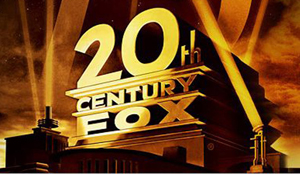
Fox
16 New Theatrical Releases
0 $200m domestic releases
0 $100m-$199m releases
0 under-$25m release
Wow.
A bit underwhelming.
10 of the 16 releases grossed over $50 million domestic… but less than $100 million. Internationally, things were better, with 9 films over $100 million and three of them over $200 million, the top ones being Narnia 3 and Knight & Day, both of which had over 70% of their gross overseas.
But the biggest issue for Fox this year was budget. Known as the most frugal major, they let four movies go over the $100 million mark in production. And that doesn’t include Narnia, for which the cash probably came mostly out of Anchutz’s pocket. The A-Team at $50m? Absolutely. Unstoppable at $50 million? Could be a killing. But at over $100 million each… there’s no room for air (or err).
Date Night and Diary of a Wimpy Kid were the biggest hits for the studio.
It’s almost like Ice Age 3 and Wolverine and Chipmunks 2 and Avatar were so much to consider and so successful that they got distracted and forgot they had a business to continue with in 2010. Almost 40% of the studio’s total domestic gross this year came from the two big December holdovers. It’s more like 30% of the total worldwide number. But it’s not pretty either way.
2011 offers what could be a very strong line-up. Not Avatar strong, but much stronger than 2010. 5 significant sequels, a new animated film that could be The Next Franchise, and a few titles that have the potential to be unexpectedly strong or to fall off the face of the earth. But a minimum of four $100 million domestic titles. Much better. Still a little like waiting on Avatar 2. But things could be much happier in the new year.
In other words… one year great, one year crap seems to be a new habit for the studio… which is okay, as long as the great years remain great.
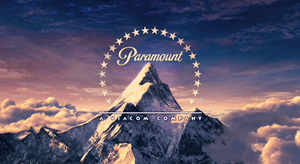
Paramount
14 New Theatrical Releases
3 $200m domestic releases
4 $100m-$199m releases
1 under-$25m release
It was a pretty nice year for Paramount… Marketing.
Of 14 pictures, 3 from DW Animation, 1 from Marvel, 1 from Relativity, and 1 from Mallick Media.
Of the other 8 films, with due credit, 2 DreamWorks holdovers, a Jackass film that Par had little to do with producing, a Nickelodeon-based family film, a sequel that became a Paramount thing when Adam Goodman stuck around, Morning Glory, and two quality films, Shutter Island (moved from 2009) and True Grit.
So it’s hard to figure out exactly how to judge the studio as a studio. They own none of their top four grossers. But they made an absolute killing on Jackass 3D and Paranormal Activity 2. And they netted about $200 million distributing and marketing the movies they didn’t own. They did well financially with Shutter Island. And for all the pain it seemed to cause critics, The Last Airbender should make a little money in the end after grossing $320 million worldwide.
There really aren’t any big mistakes. Even Morning Glory may find some black ink eventually, but if it doesn’t, so be it, it’s a relationship writedown for JJ Abrams.
On the other hand, move Shutter Island back to 2009 and forget the fluke of having a Jackass film this year and suddenly, the studio looks like a production company operating on the same lot as one of the town’s best distribution and marketing businesses. But is that really a Studio?
2011 will be the turning point. 8 in-house movies out of 15, but with some potentially big titles in that group, from Trannies 3: This Time Spielberg Gets His Cut to Mission:Impossible 4 to Tintin, JJ Abrams’ Super 8, Rango (who knows?), and yes, a third installment of Paranormal Activity. That group of films alone could be $2.5 billion in worldwide grosses or more. Then the paydays for DWA and Marvel on top of that, which could be more than $150 million, look like some great bonus on top of great success.
In other words… huge potential in 2011 to have the first truly great year under the Grey/Moore regime.
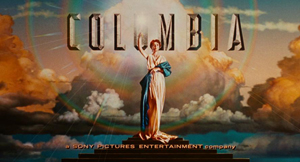
Sony
10 New Theatrical Releases
0 $200m domestic releases
4 $100m-$199m releases
1 under-$25m release
Four industry franchises top the Sony year; The Karate Kid, Adam Sandler, Will Ferrell, and Angelina Jolie with a gun. They will all be profitable, but Sony is still making these movies for too much money. Why do you need $100 million to make a buddy cop comedy? Why do Adam Sandler movies cost $80 million. (In this case, they were fortunate that the film was a couple million shy of being his biggest domestic hit ever and it is easily his biggest international draw, a rarity in his case.) The Jolie movie was about right. And The Karate Kid is every studio’s dream with 9x production costs in theatrical alone.
But as you see… no grand slams.
So you look at the smaller pictures, where international turned red ink to black with The Bounty Hunter and Eat Pray Love. The Social Network is a solid double financially. And the year ended with two car wrecks in The Tourist and How Do You Know, both of which will lose money. The question on The Tourist is how the deal with Graham King was structured and how much will GK Films and Studio Canal eat vs Sony. On How Do You Know, it’s all in-house and the damage could be a record for the year… almost certainly over $50 million and possibly as much as $75 million being written down there. Ouch.
Still, the year will be profitable… just not nearly as profitable as it might have been had they just skipped the fourth quarter.
In 2011… who knows? The studio bailed on being big summer competitors, with some potentially good comedy titles, but nothing close to a tentpole movie.
They have two Adam Sandler comedies due at either end of the year. Maybe something will jump, but it doesn’t look so great. And then, the fall gets very interesting. Bennett Miller’s Moneyball in September, the latest shot at animation with the Zemeckish Arthur Christmas in November, and then Scorsese’s Hugo Cabaret and Fincher’s The Girl With The Dragon Tattoo in December.
In other words… next year looks a lot like this year… but there’s always hoping… and Spider-Man in 2012.
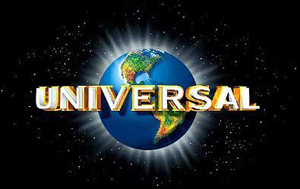
Universal
15 New Theatrical Releases
1 $200m domestic releases
1 $100m-$199m releases
4 under-$25m release
Universal didn’t release a single film on fewer than 2500 screens. Not MacGruber. Not Repo Men. The studio went for it no matter what. But a big part of this is that they have a deal with Ryan Kavanaugh’s Relativity Media that had his company putting money into every single Universal release aside from Despicable Me in 2010. And Universal also had its marketing department getting its hands into a bunch of Rogue movies as well, even though Rogue is, in theory, a separately owned company now.
This is not to say that Kavanaugh is to blame for the weak year. Most of the time, it was more money than influence on the product. Two studios generated more domestically than Universal made worldwide. Only four of the 15 titles grossed as much as $100 million worldwide.
The good news is that only two of the films were expensive disasters. Most of the line-up was cheap. Only three of the eleven films that generated less than $100m worldwide cost more than $35 million. And many of them cost a lot less. The problem is that there were still marketing costs, sometimes greater than the cost of the films. But you really get the feeling that the studio was putting its head down and riding out the Kabletown deal.
2011 looks a little more like the Universal we’ve known and loved over the years. A first Fast & Furious film, the pricey Cowboys & Aliens, a feel good dramedy from director/star Tom Hanks, and an expensive Brett Ratner comedy with Ben Stiller and Eddie Murphy. In other words, more chasing the gold ring… more risk… more interesting year. There are also a bunch of comedies, including Your Highness, Bridesmaid, and The Change Up, as well as another try for big animation dollars with Hop.
In other words… good luck, folks. The less blood that ends up getting spilled, the better for the town.
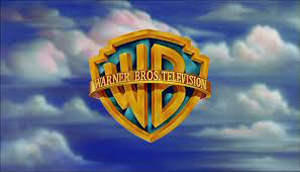
Warner Bros
22 New Theatrical Releases + 1 IMAX
2 $200m domestic releases
3 $100m-$199m releases
6 under-$25m releases
As it turned out, The Franchise Studio was led by two franchises, Harry Potter and Christopher Nolan. Both of those films did over $800 million worldwide and both grossed at least $330 million more than the #3 for the studio, Clash of the Titans.
The year started with some nice holdover business from Sherlock Holmes and the surprise $213m worldwide hit, Valentine’s Day, which landed after modest runs for Mel Gibson in Edge of Darkness ($81m ww) and Denzel Washington in The Book of Eli, which did slightly better than expected here ($94.8m), but was a step back wards for Denzel internationally, scoring just $62.3m for the moody action film.
Cop Out was Kevin Smith’s biggest grosser, though even Bruce Willis couldn’t deliver him foreign dollars. Clash of the Titans was a significant hit ($493m ww), in the face of blistering reviews.
A bad run followed for a month and a half with The Losers, a profitable but modest reboot of Nightmare on Elm St, Sex & The City 2 scoring what would have been a nice success for the first film, but looked like a car wreck with a significantly bigger budget and expectations to go with it, Splice (which just didn’t get much traction, no fault of the film), and Jonah Hex, a disaster they saw coming from quite a distance.
Inception was, quite literally, a tent pole for the studio, which started sinking within 2 weeks with a Cats & Dogs sequel that did half its original’s gross domestically and worldwide, the retro Flipped that never got into wide release, Lottery Ticket, an attempt to get into the “urban comedy” game, and Labor Day dump, Going The Distance, which didn’t.
But The Town was one of the big surprise hits of the fall, Legend of the Guardians: The Owls of Ga’Hoole, secretly from Zack Snyder seemed like a complete loss but actually got some traction with families (though it will still lose money) and even though their Heigl rom-com Life As We Know It opened soft, it played better than its opening suggested and got close to $100m worldwide.
Eastwood’s Hereafter will seek to make some more internationally, but things really got better for WB when November came. First, with Todd Phillips’ follow-up to The Hangover, Due Date, that didn’t do mega-business, but ended up near $200 million worldwide, which was quite an achievement for a tough-minded comedy. Then, the next-to-last Potter film… and inevitable smash, but coming to an end, the kind of moment that makes execs very nervous (as in, “Will they do to me what they did to New Line within a few years of Rings?”).
2010 ended with a minor flop – especially vs cost – with Yogi Bear, a film that targeted the Chipmunks crowd.
Was it a great year for the studio? No. But Inception and Titans both had the potential to be money drains for the studio and ended up being nothing of the kind. And Potter was Potter. That’s enough to drive most studios… 3 big winners, 2 of them unexpected.
The key was the spending, which was mostly contained on the flops. Jonah Hex was the most painful… which is to say, not a massive write-off.
And really, Inception changed the year for the studio. Without that film turning into a profit center and with Potter feeling more inevitable than anything else, it may have been a fairly unhappy year in Burbank. But Inception covered the cost of the flops, kept the studio from going April – November without a real hit, and made a mediocre year a pretty good year.
2011 is another risky year for Warner Bros. There is the potential of some massive hits… or some tough losses. Sucker Punch, The Hangover 2, Green Lantern, Happy Feet 2, and Sherlock Holmes 2 are all expensive risks… but all could be very successful as well. For instance, Hangover 2 seems likely to be the best opening for a comedy in history, passing The Simpsons Movie’s $74 million. The question will be how much of the money goes right into Todd Phillips’ pocket this time around.
Less risky are films like Final Destination 5, The Apparition, Contagion, New Year’s Eve, and a bunch of smaller films.
The question with WB is always whether being the most prolific distributor is really in the best interest of the studio. Right now, there are only three months of the year without at least two films to push out there. That’s a lot. And that’s why you have so many titles that seem to be lost in the year for the studio. If they were the only distributor, sure… but with five others chasing dates, it’s pretty much guaranteed that there will be lost soldiers.
In other words… with the final Potter coming, WB’s 2011 could look even better than 2010… or it could be a very frustrating year that needs another Hangover-style surprise to make the year look really strong, aside from the one mega-movie.















Didn’t even mention the success of Tangled despite being something like the 3rd most expensive film ever made